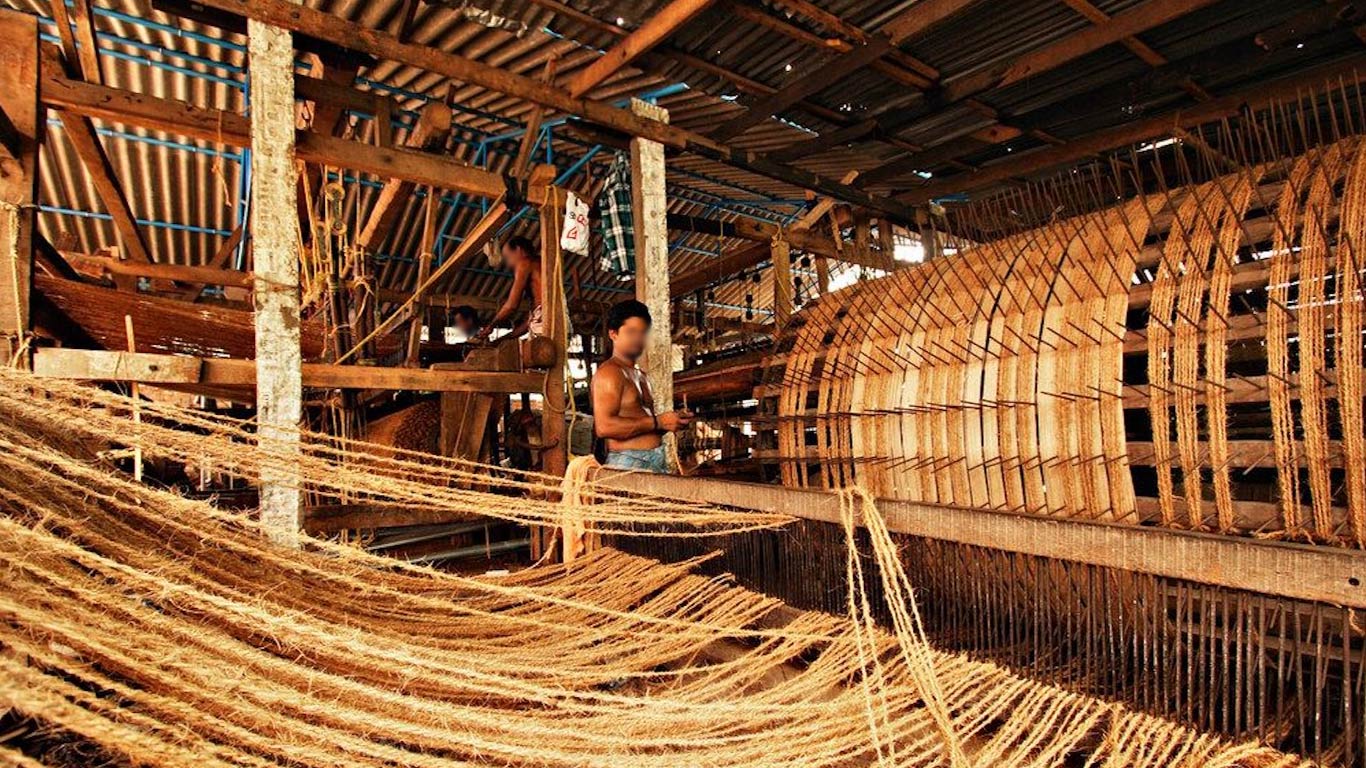Coir Units In Tamil Nadu Set To Benefit From Rs. 25 Lakh Subsidy For Drying Yards
Updated: Jan 06, 2024 05:25:37pm

Coir Units In Tamil Nadu Set To Benefit From Rs. 25 Lakh Subsidy For Drying Yards
Coimbatore, Jan 6 (KNN) Coir units aiming to establish drying yards will receive substantial support with Rs 25 lakh or 25 per cent of the total cost, as subsidy, under the newly introduced Tamil Nadu Coir Policy.
An official from the Tamil Nadu Coir Business Development Corporation (Tancoir) revealed that approximately 60 units are currently in the process of establishing these yards, reported the Hindu on Friday.
Highlighting the importance of coir pith in the State's exports, the official emphasised that nearly 52 per cent of coir exports comprise coir pith.
To ensure a favourable international market price, the official asserted, it is crucial to dry the pith on a clean surface. The introduction of drying yards is expected to greatly benefit coir pith exporters, providing them with a competitive edge.
In addition to subsidies for drying yards, the policy also outlines a 25 per cent subsidy for green house dryers, aiming to expedite the drying process for coir pith.
The policy further addresses the establishment of coir industrial parks, with ongoing efforts to identify potential investors.
Recognising the need for increased awareness and motivation among coir sector stakeholders for value addition, the policy aligns with existing state government schemes for the MSME sector.
Apart from infrastructure support, the coir policy extends assistance to coir unit owners by covering testing and quality certification costs.
This support is not limited to micro-units but also extends to small and medium-scale enterprises, fostering a holistic growth approach.
S. Mahesh Kumar, President, Indian Coir Pith Association, expressed optimism about the vast potential in the domestic market for coir products.
He suggested targeting products like coir folding mattresses and coconut by-products for healthcare to cater to the common man.
Kumar urged the State government to identify such products, offering support through the adoption of the latest technology and strategic marketing to reduce production costs.
Such initiatives, he noted, would also benefit coconut producers struggling with low prices over the past two years.
Coimbatore, Jan 6 (KNN) Coir units aiming to establish drying yards will receive substantial support with Rs 25 lakh or 25 per cent of the total cost, as subsidy, under the newly introduced Tamil Nadu Coir Policy.
An official from the Tamil Nadu Coir Business Development Corporation (Tancoir) revealed that approximately 60 units are currently in the process of establishing these yards, reported the Hindu on Friday.
Highlighting the importance of coir pith in the State's exports, the official emphasised that nearly 52 per cent of coir exports comprise coir pith.
To ensure a favourable international market price, the official asserted, it is crucial to dry the pith on a clean surface. The introduction of drying yards is expected to greatly benefit coir pith exporters, providing them with a competitive edge.
In addition to subsidies for drying yards, the policy also outlines a 25 per cent subsidy for green house dryers, aiming to expedite the drying process for coir pith.
The policy further addresses the establishment of coir industrial parks, with ongoing efforts to identify potential investors.
Recognising the need for increased awareness and motivation among coir sector stakeholders for value addition, the policy aligns with existing state government schemes for the MSME sector.
Apart from infrastructure support, the coir policy extends assistance to coir unit owners by covering testing and quality certification costs.
This support is not limited to micro-units but also extends to small and medium-scale enterprises, fostering a holistic growth approach.
S. Mahesh Kumar, President, Indian Coir Pith Association, expressed optimism about the vast potential in the domestic market for coir products.
He suggested targeting products like coir folding mattresses and coconut by-products for healthcare to cater to the common man.
Kumar urged the State government to identify such products, offering support through the adoption of the latest technology and strategic marketing to reduce production costs.
Such initiatives, he noted, would also benefit coconut producers struggling with low prices over the past two years.
(KNN Bureau)












